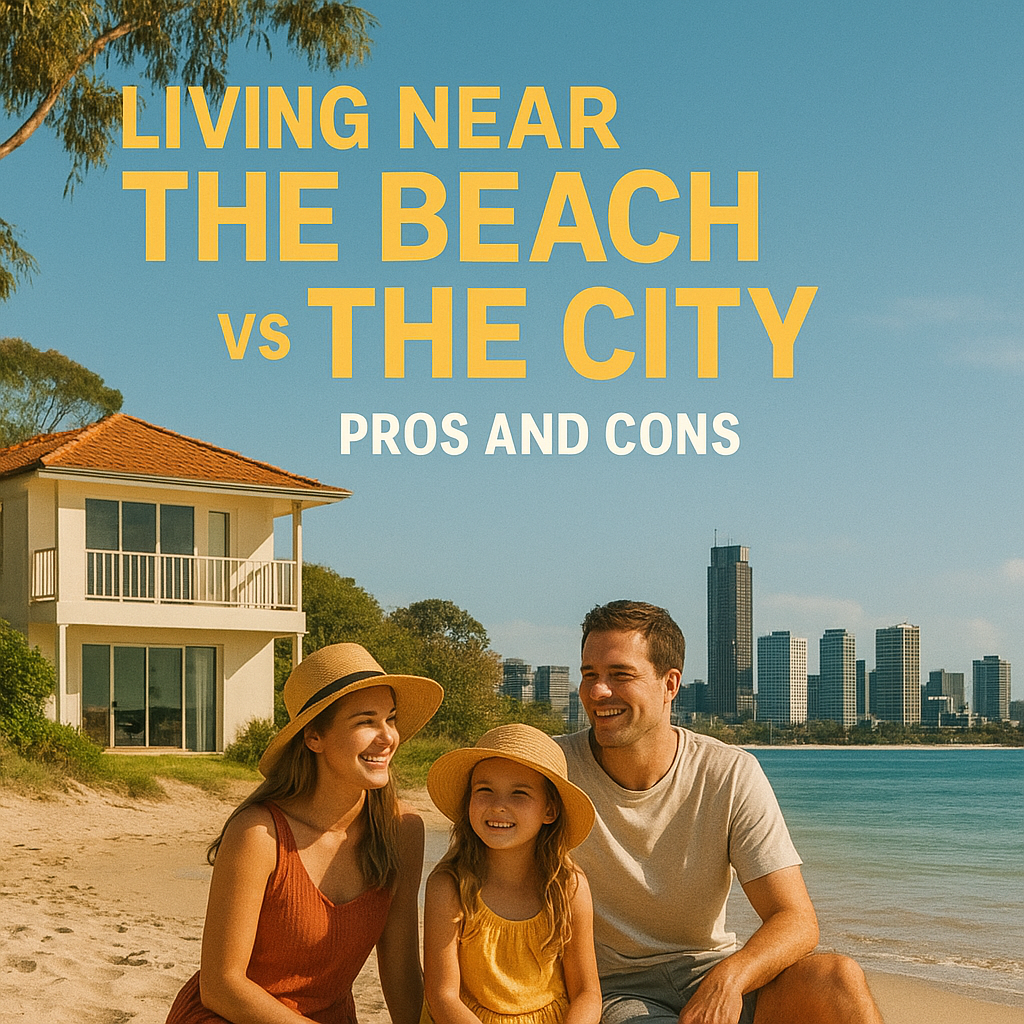Explore the pros and cons of living near the beach vs the city in Australia, with a clear guide for lifestyle seekers and new arrivals.
Living Near the Beach vs the City: Pros and Cons in Australia
Choosing where to live in Australia is a big decision, especially if you’re weighing a beach lifestyle against the energy of city living. Each offers distinct advantages and challenges. Use this step-by-step guide to make an informed choice tailored to your lifestyle needs.
Step 1: Envision Your Ideal Lifestyle
Start by considering what matters most for your daily life:
- Pace and atmosphere: Do you prefer laid-back mornings or a vibrant urban buzz?
- Community feel: Are you seeking community connection or anonymity?
- Accessibility: Think about proximity to work, education, and amenities.
These questions establish your priorities and clarify which environment might better suit your long-term goals.
Step 2: Understand the Beach Lifestyle in Australia
Pros
- Relaxed Pace & Wellness
Coastal towns in Australia are known for their leisurely pace, reduced stress, and a culture that encourages outdoor activities like swimming, surfing, and walking. - Natural Beauty
Living near the beach offers stunning views, direct access to nature, and abundant opportunities for relaxation and recreation. - Tight-Knit Community
Many beach towns have smaller populations, fostering closer relationships and a strong sense of belonging.
Cons
- Limited Employment Options
Jobs can be scarce in coastal areas, particularly for skilled professionals or those seeking roles outside tourism and hospitality. - Fewer Amenities
Access to major hospitals, universities, cultural events, and shopping centers may be limited. - Weather and Tourist Influx
Some beach areas experience harsh weather or seasonal tourist crowds, increasing noise and reducing privacy.
Step 3: Examine City Living in Australia
Pros
- Diverse Opportunities
Major cities like Sydney, Melbourne, and Brisbane offer a broad range of jobs, higher wages, and access to world-class healthcare and education. - Convenient Services and Culture
Residents enjoy a vast array of restaurants, entertainment venues, cultural events, and efficient public transport. - Networking and Growth
City living in Australia advantages include easier networking, business growth, and exposure to diverse communities.
Cons
- Higher Living Costs
City real estate and general expenses are much higher—especially in central suburbs. - Noise and Crowds
Expect more traffic, noise, and a fast-paced environment that can be overwhelming. - Smaller Spaces
Apartments tend to be smaller and outdoor space more limited compared to coastal towns.
Step 4: Compare Top Locations
Whether you’re after the best places to live in Australia for lifestyle or focused on work opportunities, consider the following:
| Factor | Coastal Towns | Major Cities |
|---|---|---|
| Pace | Slow & relaxed | Fast & dynamic |
| Nature Access | Beaches, bushland | Parks, urban gardens |
| Employment | Tourism, local trade | Business, tech, education |
| Transport | Car-dependent | Public transit options |
| Amenities | Basic, limited | Extensive, diverse |
| Cost | Varied, often less | High—especially housing |
Upper NSW and Queensland have renowned beach towns (e.g., Byron Bay, Noosa), while cities like Sydney and Melbourne lead for culture, jobs, and global connections.
Step 5: Consider Lifestyle & Long-Term Plans
Reflect on both the beach lifestyle Australia pros and cons and the realities of city convenience. Ask yourself:
- Are you looking to raise a family, advance your career, or retire in peace?
- Will you miss the vibrancy of the city, or crave the calm of the coast?
- What does your budget allow, and how important is daily access to services or nature?
Conclusion
Your ideal home depends on what matters most: serenity and scenery, or opportunity and excitement. Both coastal towns and major Australian cities offer rewarding lifestyles—you simply need to align your choice with your personal and professional goals.

